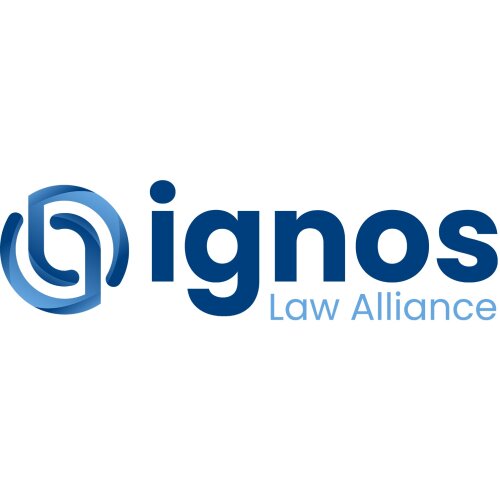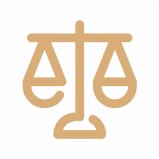Best Fintech Lawyers in Indonesia
Share your needs with us, get contacted by law firms.
Free. Takes 2 min.
Or refine your search by selecting a city:
List of the best lawyers in Indonesia
About Fintech Law in Indonesia
Fintech, or financial technology, in Indonesia has been rapidly evolving as it merges finance and technology to facilitate financial services in innovative ways. The Indonesian government recognizes the potential of fintech in enhancing financial inclusion and has undertaken initiatives to regulate and support its growth. The market is diverse, encompassing payment systems, peer-to-peer lending, crowdfunding, and investment platforms, serving millions who may previously have been underserved by traditional banking structures. Understanding the legal landscape is crucial for businesses and entrepreneurs in this sector to ensure compliance and secure their operations within this dynamic market.
Why You May Need a Lawyer
There are several scenarios in which legal counsel could be beneficial for those operating within the fintech industry in Indonesia:
- Regulatory Compliance: Navigating complex regulations to ensure your operations are compliant with the financial and data protection laws.
- Licensing and Registration: Assistance in acquiring the necessary licenses from governmental bodies such as the Financial Services Authority (OJK) or Bank Indonesia.
- Contracts and Agreements: Drafting, reviewing, and negotiating contracts with partners, customers, or vendors can ensure your agreements are fair and enforceable.
- Data Protection: Guidance on compliance with data protection regulations, including the handling and storage of customer data.
- Dispute Resolution: Representation or mediation in case of disputes with clients, employees, or regulatory agencies.
- Intellectual Property: Protecting proprietary technology and processes via patents and copyrights.
Local Laws Overview
The regulatory framework for fintech in Indonesia is primarily governed by Bank Indonesia and the Financial Services Authority (OJK). Some key aspects include:
- Licensing Regulations: Any fintech business operating in Indonesia must acquire a license from OJK or register with Bank Indonesia, especially if providing payment system services.
- Consumer Protection: There are specific regulations in place to protect consumers, focusing on transparency, data security, and dispute resolution mechanisms.
- Data Privacy Laws: The Personal Data Protection Act imposes strict requirements on the handling and processing of personal data, obligating fintech companies to implement adequate security measures.
- Foreign Ownership Restrictions: Fintech companies must abide by rules regarding foreign participation to maintain compliance and secure their ventures.
- Anti-Money Laundering (AML) Requirements: Fintech entities must comply with regulations designed to mitigate risks related to money laundering and terrorist financing.
Frequently Asked Questions
What licenses do fintech companies need to operate in Indonesia?
Fintech companies typically need a license from either the Financial Services Authority (OJK) or registration with Bank Indonesia, depending on their specific business model.
Are there specific regulations for peer-to-peer lending platforms?
Yes, peer-to-peer lending platforms need to adhere to financial regulations set by the OJK, including capitalization requirements, risk management protocols, and consumer protection measures.
How does Indonesia regulate digital payment systems?
Digital payment systems are regulated by Bank Indonesia, which requires such service providers to register and comply with operational, technical, and security standards.
What are the data protection requirements for fintech in Indonesia?
Fintech companies must follow the Personal Data Protection Act, implementing necessary technical and organizational measures to safeguard personal data.
Are cryptocurrency transactions legal in Indonesia?
Cryptocurrency transactions are permitted but heavily regulated, with cryptocurrencies recognized only as a trading commodity, not a means of payment, under supervision by the commodities futures trading regulatory agency (BAPPEBTI).
Can foreigners own fintech companies in Indonesia?
Yes, but there are restrictions on foreign ownership percentages, which vary based on the specific sector and activities of the fintech company.
What tax obligations do fintech operators face in Indonesia?
Fintech operators must comply with general corporate tax obligations, VAT if applicable, and may be subject to withholding taxes on certain transactions.
How do I protect my fintech intellectual property?
Through patents, trademarks, and copyrights under Indonesian intellectual property laws. It's advisable to consult with an IP attorney for comprehensive protection.
What do I do if I have a dispute with a fintech service provider?
You can pursue dispute resolution avenues like negotiation, arbitration, or legal action, depending on the contract terms and nature of the dispute.
Is there a regulatory sandbox available for fintech startups in Indonesia?
Yes, the OJK provides a regulatory sandbox to help fintech startups test their products in a controlled environment, ensuring they meet regulatory standards before full-scale launch.
Additional Resources
For those seeking more information on fintech regulations in Indonesia, the following resources may be helpful:
- Financial Services Authority (OJK): The primary regulator for the non-bank financial sector in Indonesia.
- Bank Indonesia: The central bank focuses on payment systems and economic stability.
- Indonesia Fintech Association: A platform for networking and collaboration amongst fintech companies.
- Ministry of Communication and Informatics: A body overseeing data protection and the ICT sector.
- Local Law Firms: Many law firms specialize in fintech and can offer specific legal advice tailored to business needs.
Next Steps
If you require legal assistance in the fintech industry in Indonesia, consider the following steps:
- Identify Your Legal Needs: Determine the specific areas where you require legal advice, be it licensing, contracts, regulatory compliance, etc.
- Consultation: Seek consultation with firms or legal experts specializing in fintech to explore potential strategies and solutions.
- Engage a Local Law Firm: Hire a reputable law firm familiar with the Indonesian fintech landscape and capable of providing ongoing legal support.
- Stay Informed: Keep abreast of regulatory changes that might affect your business operations and adapt accordingly.
- Join Fintech Communities: Engage with local fintech associations or networks to share experiences and insights.
Lawzana helps you find the best lawyers and law firms in Indonesia through a curated and pre-screened list of qualified legal professionals. Our platform offers rankings and detailed profiles of attorneys and law firms, allowing you to compare based on practice areas, including Fintech, experience, and client feedback.
Each profile includes a description of the firm's areas of practice, client reviews, team members and partners, year of establishment, spoken languages, office locations, contact information, social media presence, and any published articles or resources. Most firms on our platform speak English and are experienced in both local and international legal matters.
Get a quote from top-rated law firms in Indonesia — quickly, securely, and without unnecessary hassle.
Disclaimer:
The information provided on this page is for general informational purposes only and does not constitute legal advice. While we strive to ensure the accuracy and relevance of the content, legal information may change over time, and interpretations of the law can vary. You should always consult with a qualified legal professional for advice specific to your situation.
We disclaim all liability for actions taken or not taken based on the content of this page. If you believe any information is incorrect or outdated, please contact us, and we will review and update it where appropriate.
Browse fintech law firms by city in Indonesia
Refine your search by selecting a city.
















